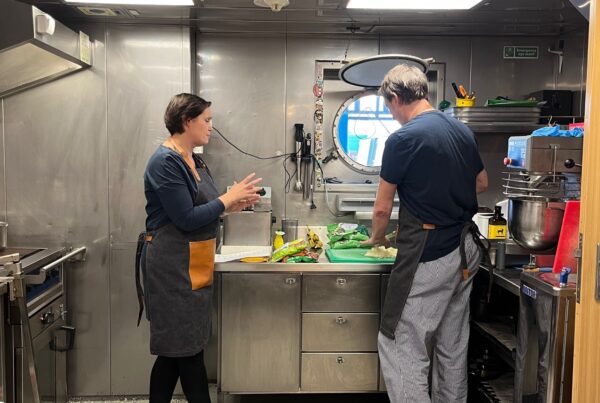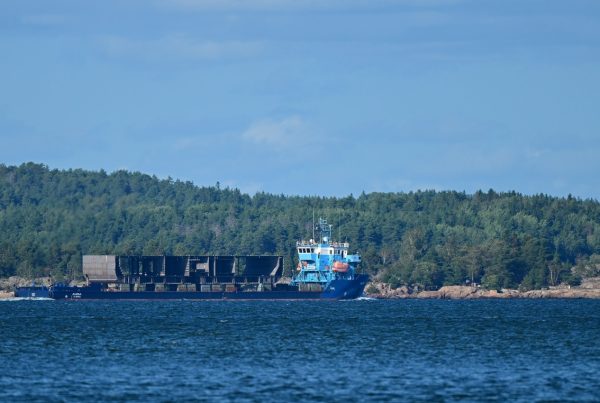In the beginning of the week the government of Finland (like many others) announced that the state of emergency is over. Before that we had already taken steps towards ”the normal” in many ways. Many have returned to offices, and the bulk transport market also shows signs of recovery after the collapse some weeks ago. Summer has finally arrived also in Finland, and people are starting their holidays and moving to their cottages, many by the sea. Up here in the North we always hope for a warm summer, but high temperatures unfortunately also mean a harmful algae bloom in the Baltic Sea. According to Finnish Environment institute’s recent forecast, the risk of bad cyanobacterial blooms is significant this year as well. The Baltic Sea and its poor condition have frequently made the headlines in the past few weeks. On the UN World Environment Day June 5th, the action plan for Operation Archipelago Sea 2019-2023 was published. The program has been prepared by Professor Emeritus Kalervo Väänänen, Rector of the University of Turku, with the contribution of a wide range of experts, including Jussi Mälkiä from Meriaura Group.
The sea is very close of us at Meriaura Group in many ways. We live and work by the sea, and it is the core of our business. In addition to maritime logistics and related services, we have several bio- and circular economy companies in our group, whose whole business is based on the measures in the above mentioned action plan. Increasing the production of biogas and recycled fertilizers has been raised as one of the key points in saving the Archipelago Sea. Our biogas plant in Uusikaupunki produces heat and electricity from biowaste collected from households, and recycled fertilizer is generated as a by-product. My son and I went to see the application of Biolinja’s recycled fertilizer and shot a little video. Next to the biogas plant is our dry-land fish farm, which is the first operating industrial-scale recirculating aquaculture plant in Finland, and a part of the closed-circulation concept. Nutrient load to the sea from recirculating aquaculture is significantly lower than in traditional fish farming. Now we are looking for a professional in fish farming to continue our work and grow environmentally friendly fish for the Finns. The purpose of the arrangement is to focus on our core business and strengths, i.e. sea transport of bulk products of bio and circular economy, as well as demanding special and heavy cargo transport.
The Baltic Sea Action Group organized a webinar on reducing nutrient emissions from maritime transport on the World Sea Day. Also, the cooperation between BSAG and the Finnish maritime cluster was announced, which includes a study on the nutrient load in maritime traffic. Many other shipping companies are involved as well, and we are very pleased that environmental issues, for which we at Meriaura have been working for a long time, have also become important in other companies. Our Zero-waste program has progressed at a slightly slower pace due to the corona situation, but we have made some development on ships such as installing drinking water taps for reducing plastic waste generated onboard.
And last but not the least: in the light of scientific research results the condition of the Baltic Sea should improve with gypsum treatment of fields. When gypsum is applied to the field at the end of the growing season, it has almost an immediate effect of binding nutrients, especially phosphorus, to the field, preventing it from leaching to waters. Meriaura Group won the tender of the 5-year gypsum project run by the Centre for Economic Development, Transport and the Environment. This summer, we will start transporting our long-term customer Yara’s soil improvement gypsum by ships from lake Saimaa to Southwest Finland, and we will coordinate and organize the application of gypsum to the farmers’ fields. As Beppe said: “The sea is our field and improving the alarming state of the Archipelago Sea is extremely important. We see this also as a project of social responsibility, and we were very motivated to win the tender.” Thanks to our strict pricing, the funds allocated to the project can cover a treatment for larger areas of fields, which in practice means that the same money will ”buy more” water protection.
To save our sea, we need all of us, both companies and individuals.
On behalf of all Meriaura Group staff, I wish you a happy Midsummer and a relaxing holiday season!
Elina Mälkiä
Communications Manager, Meriaura Group









